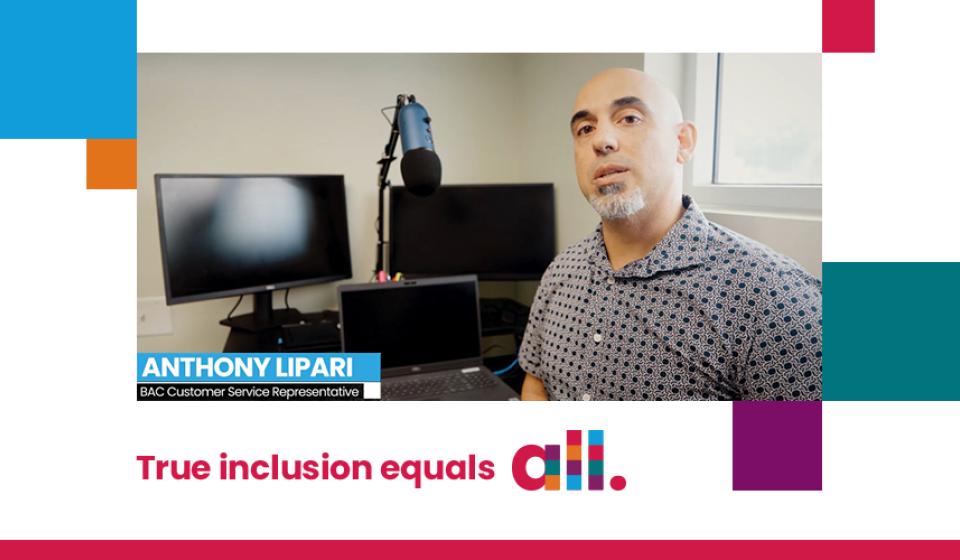Anthony Lipari
BAC Customer Care Representative
BAC / Rockledge, FL

When Anthony Lipari started training to work at a Tier One Call Center at the Brevard Achievement Center (BAC), he knew nothing about computers, which were a key component to the job. He had spent 27 years as a chef in the restaurant and dining industry. This career pivot was totally out of his comfort zone, but he knew it was what he wanted, so he never looked back. That’s because Anthony was used to a life of challenges, including one which began at the very young age of four and a half, when he suffered a stroke that paralyzed the whole right side of his body.
After the stroke, Anthony had to learn to speak and walk all over again. He said he remembers looking out the window from his wheelchair and making the decision to fight and never give up. That’s how he has lived his entire life. Even though his job could be physically demanding on his disability, Anthony became a star employee. He was dedicated and committed. But as the pain in his left arm grew, he knew he needed to find another career.
That’s when he heard about the BAC Call Center. Anthony was working on a BAC AbilityOne contract at the Patrick Air Force Base cafeteria when a BAC employee reached out with an offer: “How would you like to work at a call center?” Although he knew there would be a steep learning curve, Anthony embraced the opportunity and once again rose to the challenge. His effervescent personality and love of helping others were perfectly suited for the job.
Now a customer service representative at the Rockledge, FL, call center, Anthony says this opportunity has greatly relieved his pain and offered him the chance to continue to learn and grow and maximize his potential. In fact, within his first year, he has already been promoted to Team Lead. He uses a dictation device to record his voice and type for him, which he calls a transformative technology. Anthony is always offering encouragement and support at work because he knows how much it means to him and others. He wants those who may dismiss those with disabilities to remember his story. He says, “People have to give other people a chance when they may just want to push them aside and say, ‘You can’t do this.’ How do they know? When anyone thinks I can’t do something, I just tell them, ‘Watch me because I am coming through.’”
